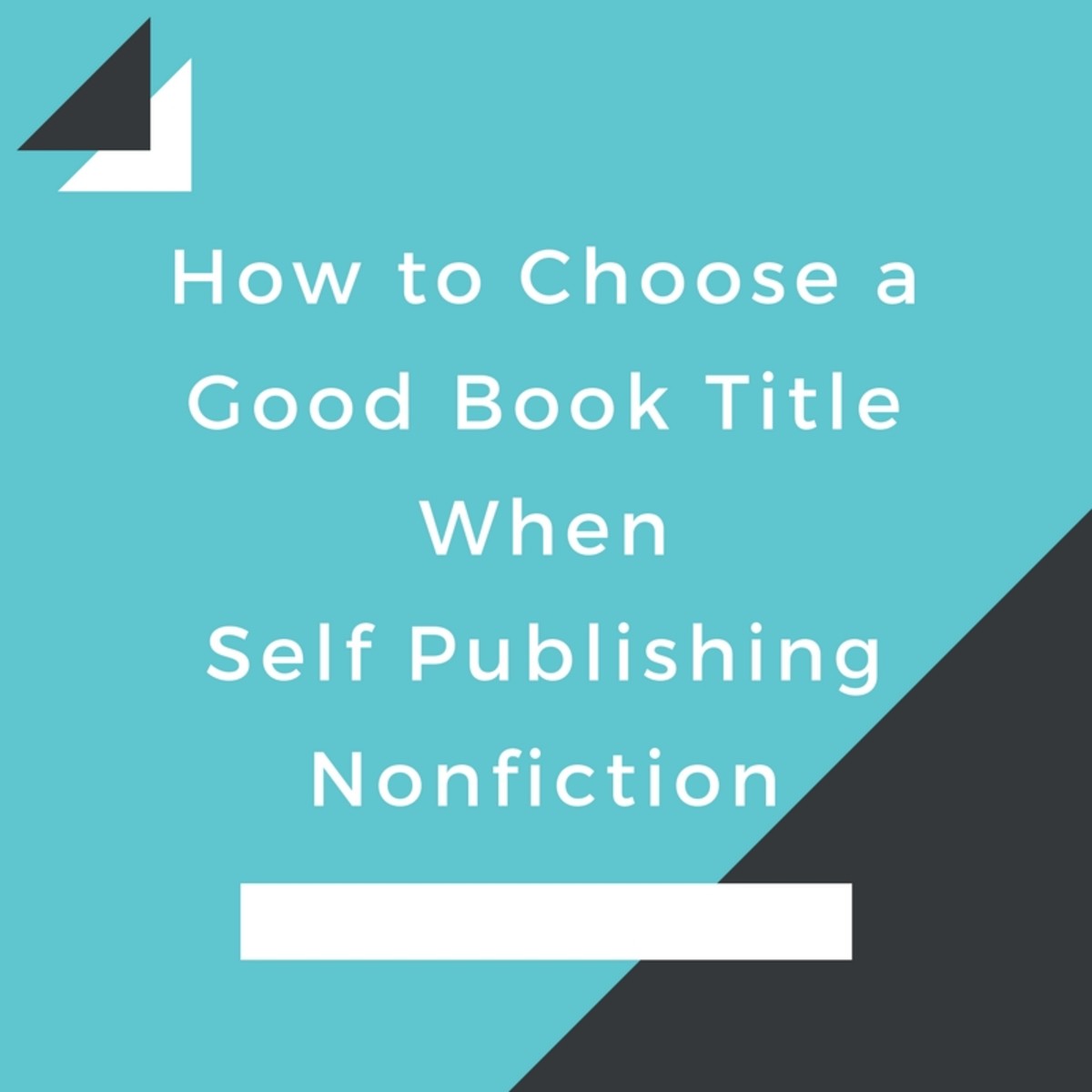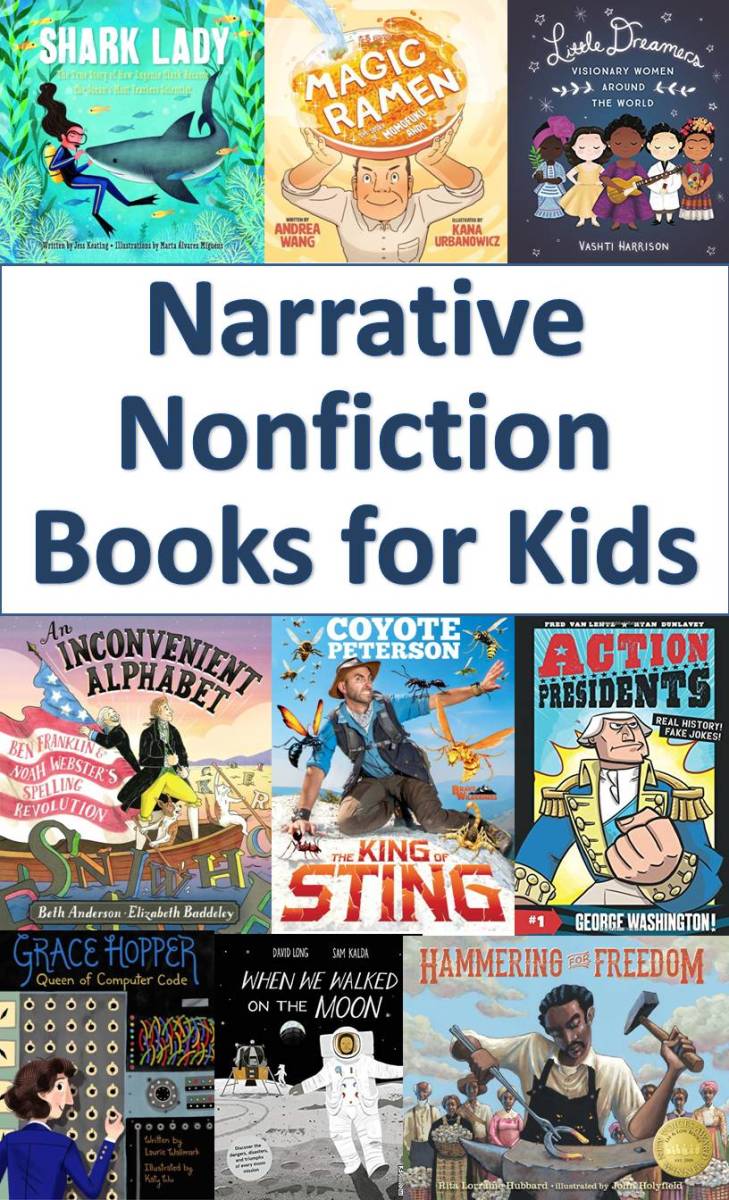How to Choose the Right Title for Your Book

Choosing the right book title is your first step to publishing success!
The right title makes an irresistible offer that your intended market can't refuse.
After spending most of my life writing nonfiction books--I've written 38 to date--and analyzing hundreds of titles, I've gained increasing respect for the power of the right title.
You don't need to be a creative genius to choose the right title, however. Like so many other activities, choosing the right title is a matter of identifying and following a process--or formula--that provides a framework for your success.
Once you've identified a formula that works, as Nike would say, "Just do it!"
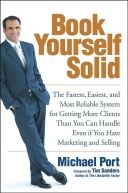
Question 1: What is the change your market desires?
Change is at the root of nonfiction book success.
Unlike fiction books, which are purchased for purchased and read for pleasure, readers purchase nonfiction books because they want to experience change.
The change may be either solving a problem or achieving a goal.
In either case, there is a purpose, or a change, that readers want to experience.
Michael Port's Book Yourself Solid is an excellent example of a "change" oriented title. There's no ambiguity about it. The benefit is stated in easily understood, conversational, language.
Like many books, the short Book Yourself Solid title is focused and reinforced by a longer subtitle: "The Fastest, Easiest, and Most Reliable System for Getting More Clients Than You Can Handle Even if You Hate Marketing and Selling."
Examples of titles that promise change - Careers have been built on simple, straightforward, titles like the following
Note how each of the following titles emphasizes the benefit that readers will enjoy in terms of achieving a goal or solving a problem.
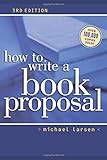




Learn how to Write Your Way to Success
For more title ideas, visit www.Publishedandprofitable.com.
Get my free 16-page Write Your Way to Success guide.
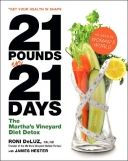
Question 2: How and when will change take place?
Be as specific as possible!
One of the best ways to sell a book is to choose a title that emphasizes how quickly your readers will be able to experience the desired change.
Few books do this as well as 21 Pounds in 21 Days: The Martha's Vineyard Diet Detox, by Roni Deluz and James Hester.
Because the words used in the 21 pounds, 21 days, title are so short, the twin 21's could be made extremely large.
Many nonfiction book titles emphasize the results, i.e., 21 pounds, or the time period, i.e. 21 days. This book's achieves its impact by using both pounds and days.
As an alternative to result or time period, many nonfiction books stress the number of steps needed to solve a problem or achieve a goal.
Examples of titles that emphasize results - Today's readers want to benefit from immediate change!
The following titles use a time to make change appear attainable. In today's busy, time-stressed, environment, readers place a premium on achieving fast results.




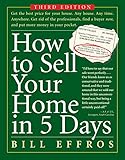
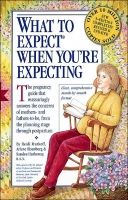
Question 3: Who is your book's intended market?
Identify who your target market is--or, who it isn't--as precisely as possible.
Successful books are often those that clearly target their intended market.
Obviously, this is not a book for men, and it's neither a general health book nor is it a diet book.
Books like this that clearly indicate their market are able to enjoy decades of continued market penetration. And, as in the case of Book Yourself Solid, What to Expect When You're Expecting is not as much a "book title" as it is an informal conversation between the author and the prospective reader.
If could have overhead the author describing the book he was working on to a fellow passenger on a coast-to-coast airplane trip, he'd probably be introducing his book by saying: "It tells what to expect when you're expecting."
Examples of book titles that emphasize their intended market - Avoid the trap of appealing to "everyone"
Focusing on specific market segments, or types of readers, makes your book more relevant to your intended readers. It also makes it easy to create a community around your readers.
As the examples below show, often the best way to define your intended reader is to emphasize who your intended reader isn't!




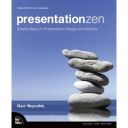
Question 4: How does this book differ from other books?
Your book's uniqueness must be immediately obvious.
The typical Barnes & Noble or Border's superstore contains well over 100,000 different titles. Amazon.com lists hundreds of thousands more.
There's hardly any topic that hasn't already been exhaustively written about in one form or another.
So, how will your book be different? What will make it stand out from the other books already existing? What the world doesn't need is another "me to" book; what it probably does need is a book that is clearly different from its competition.
What is needed, however, is a book written from a specific perspective--ideally, a perspective that immediately communicates its difference from existing books.
Garr Reynolds needed just 2 words to position his book apart from the dozens of existing presentation books. "Presentation" communicates the topic, "Zen" communicates an approach, a perspective that immediately appealed to a large, and growing, market segment that was looking for a more thoughtful approach to the subject.
The Presentation Zen title was amplified by the book's subtitle, which further identified the market: "Simple Ideas on Presentation Design and Delivery." Notice the key word, "simple," and the balance between "design" and "delivery."
Examples of titles emphasizing position, or uniqueness - Uniqueness can be created by emphasizing approach or personality
Identifying a unique approach, or distinct brand, opens the doors to unlimited possibilities.


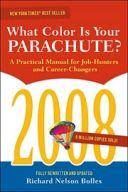
Question 5: How can I make this title easy to remember?
Engage your reader's curiosity or help them relate the title to an idea they relate to.
In addition to targeting your intended reader's needs and positioning your book apart from the competition, you also have to make your title as memorable as possible.
You lose an important sale every time a prospective reader forgets your book's title between the time they first encounter it, and the time they're ready to buy.
One of the best ways to make your book's title memorable is to arouse their curiosity, especially if the title relates to an easily remembered metaphor. This is the technique used by Richard Bolles' perennial bestseller, What Color Is Your Parachute?
At first glance, a parachute has little, or nothing, to do with finding work. But, if you've just graduated from college, or your job of 23 years has just disappeared, a parachute is precisely what you need!
Every year, hundreds of thousands of readers purchase What Color Is Your Parachute? How many copies do you think the same book would have sold if its title was, "How to Find Work?"
Examples of easy to remember titles - Curiosity leads to engagement, making titles easier to remember
Titles that arouse curiosity engage readers. "How can that be true?" Often, the easiest way to do this is to use a strange term, or provoke curiosity by using terms that are--at first glance--contradictory.




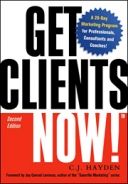
Question 6: How can I make money with this title?
Profits from book sales are just the beginning!
No matter how many copies your books sell, profits from book sales are unlikely to become a major part of your income.
Instead, most successful nonfiction authors agree that the true value of a published book is in the credibility, respect, and visibility, it brings to you and your business. Books open formerly closed doors, broadening your contact sphere and opening up new profit opportunities.
C. J. Hayden, for example, has leveraged her Get Clients Now! into a broad range of products and services, including coaching, consulting, "train the trainer" facilitator training, and other income generating sources that are, ultimately, based on her book.
For ideas, visit her site, www.getcientsnow.com, for ideas you can adapt to your own book.
Example of books that focus on future products and services - Profits from book sales are never enough!
Successful authors know their market. They know the types of clients they want to serve, and the products and services they want to offer. They write books that will pre-sell their competence to their intended markets.

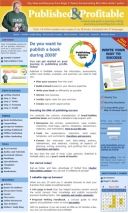
For more help choosing the title for your own book
Where should I start?
Many business owners fail to write a book because they feel they're "not creative enough," or "not enough of a writer" to do the job right.
Writing a book, however, is not about "creativity" or "writing skills," in the sense of Hemingway or Shakespeare.
Rather, writing a book is about planning (knowing your market and the information it desires), getting your ideas down as efficiently as possible, promoting your book as efficiently as possible, and creating products and services to sell those who buy your book.
To learn more, I encourage you to visit www.publishedandprofitable.com and download my free Write Your Way to Success: A 4-Step Guide to Getting Published. You'll gain a new perspective on what you need to know to leverage your background and experience to greater career success.



